The document discusses the classical approaches to management that emerged during the Industrial Revolution. It describes three major approaches: scientific management, which aimed to improve worker efficiency through time and motion studies; bureaucratic management, which emphasized rational organization structures and processes; and administrative management, which focused on management functions and principles like those outlined by Henri Fayol. The classical approaches sought to increase productivity and profitability in factories through principles of specialization, centralized decision-making, and rationalization of work.

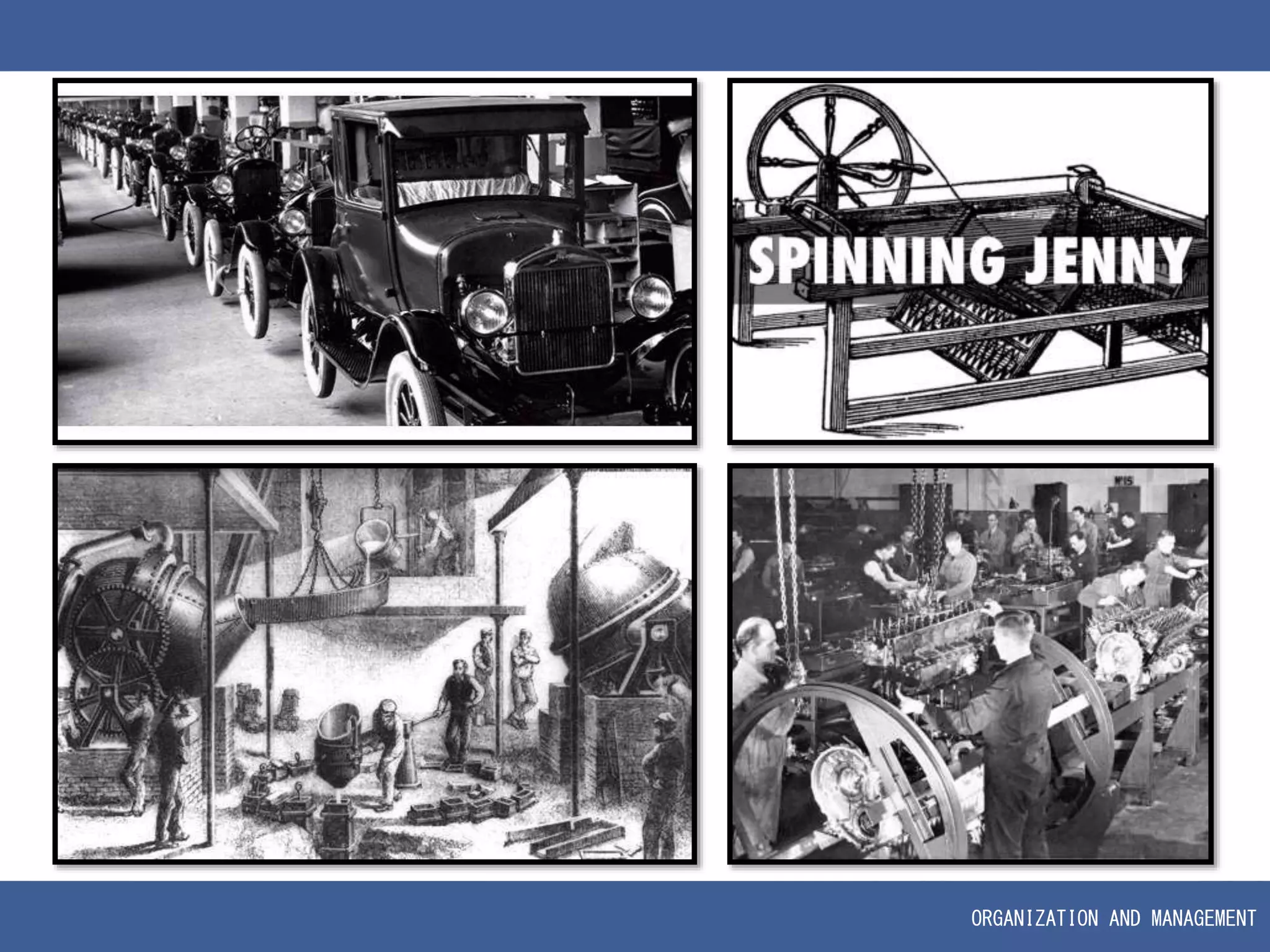



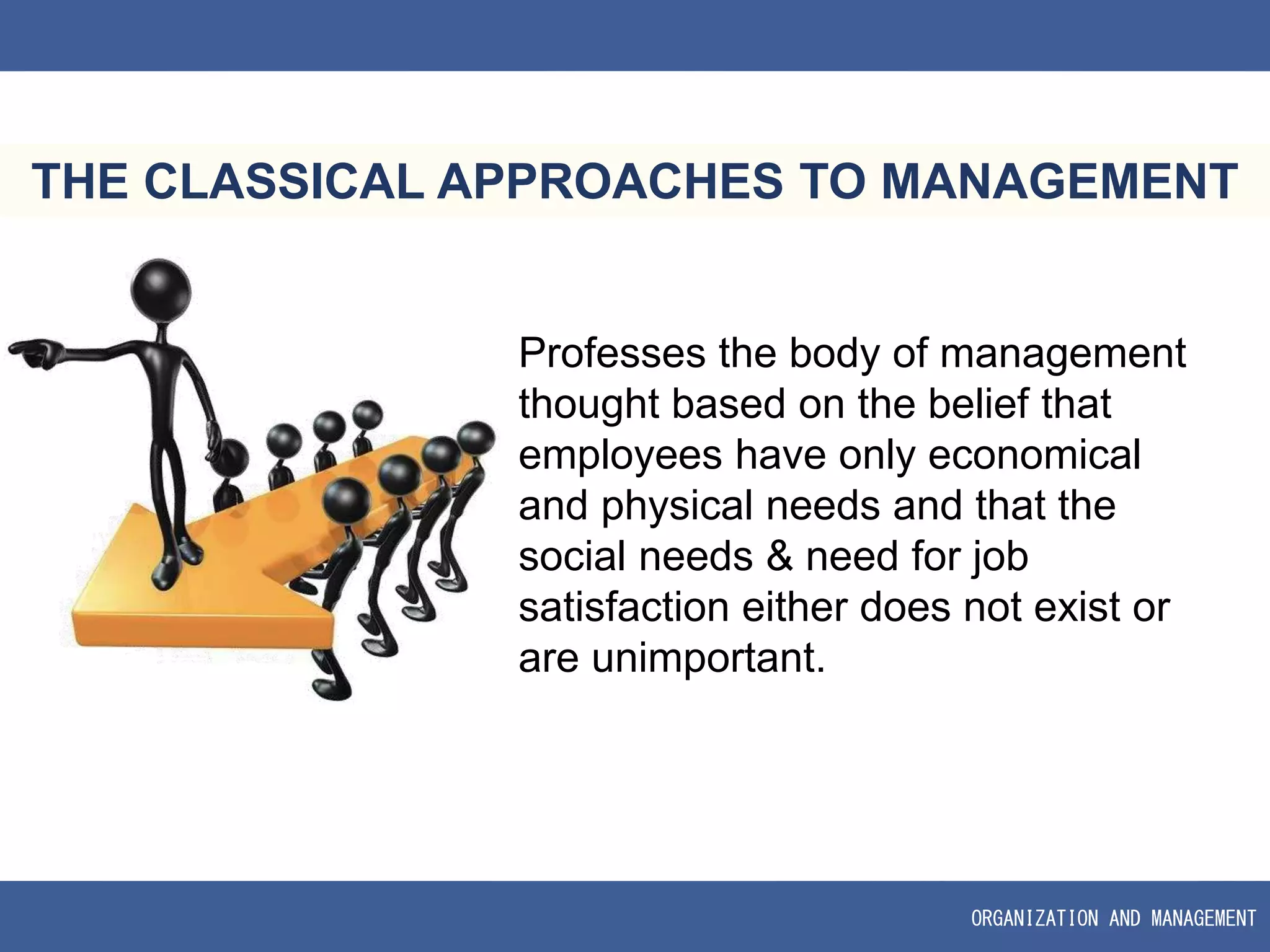
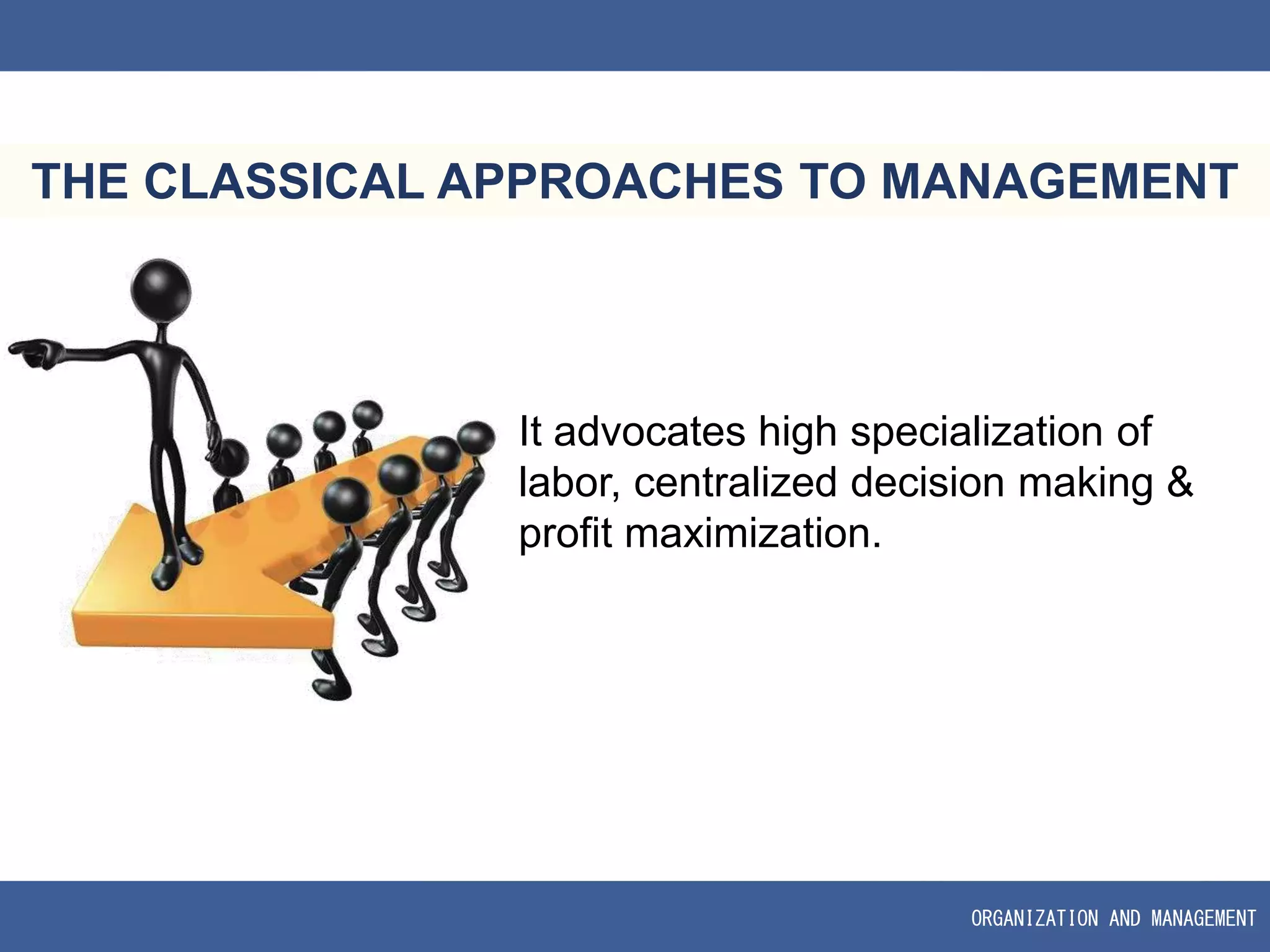
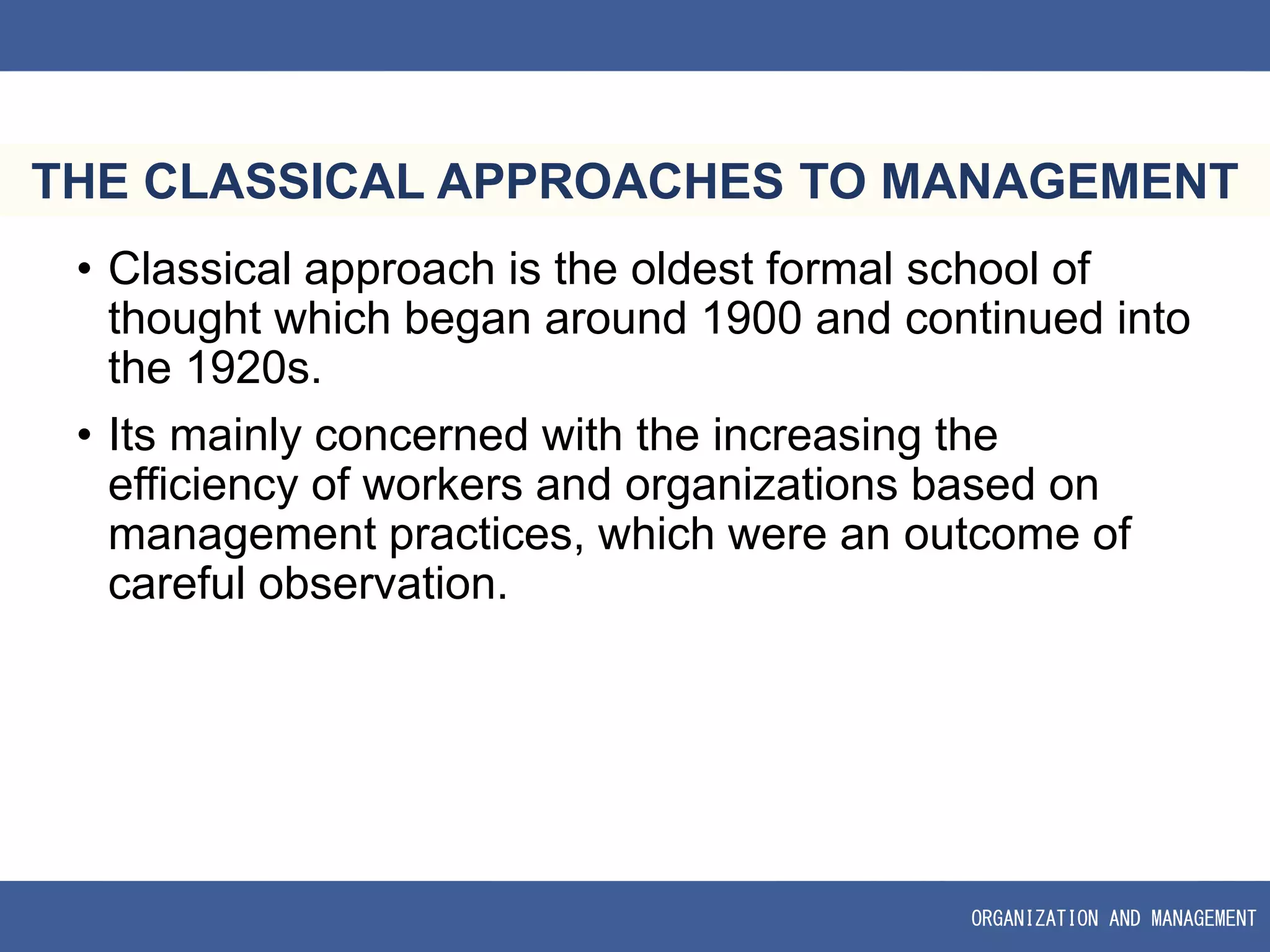

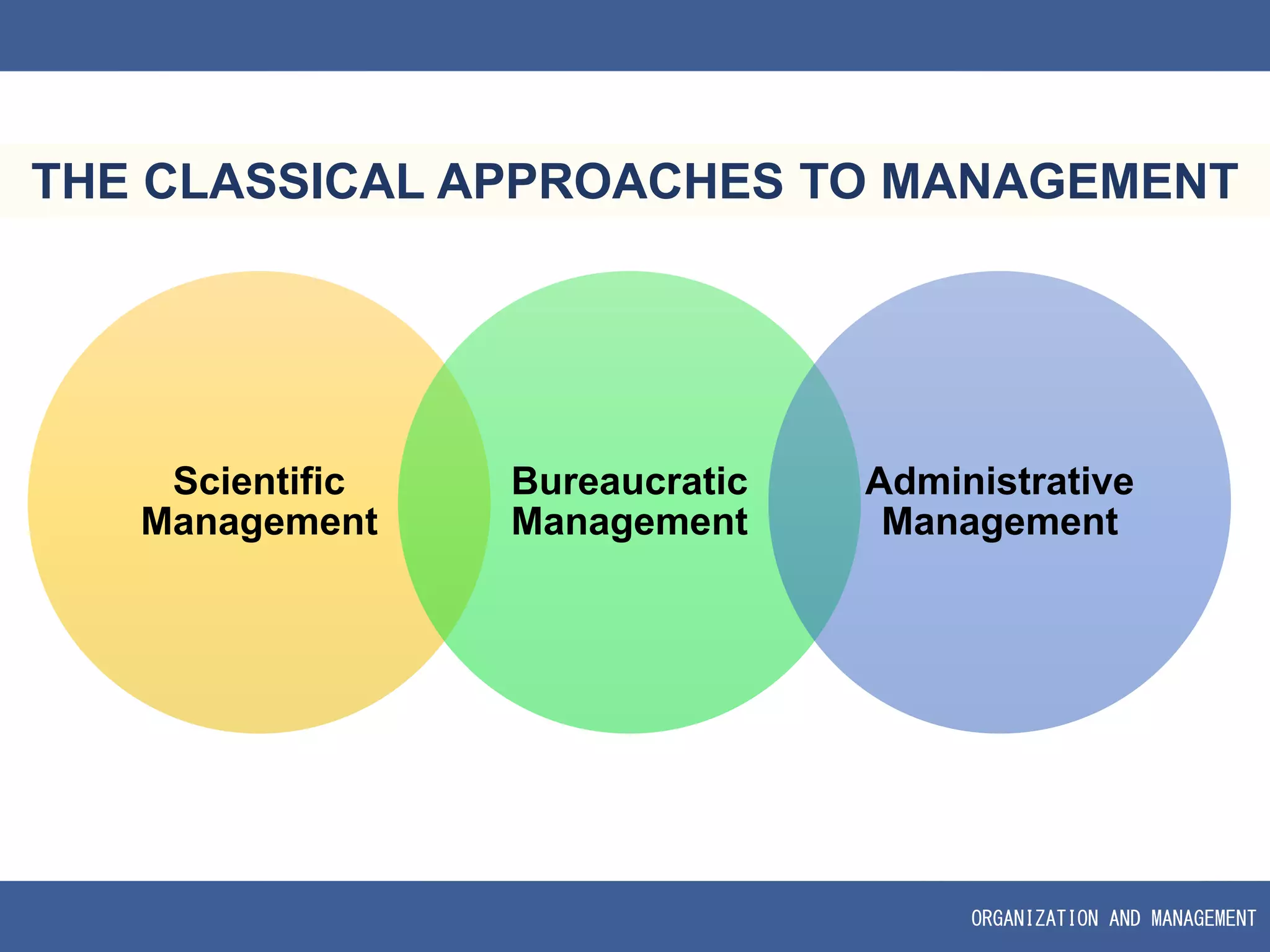
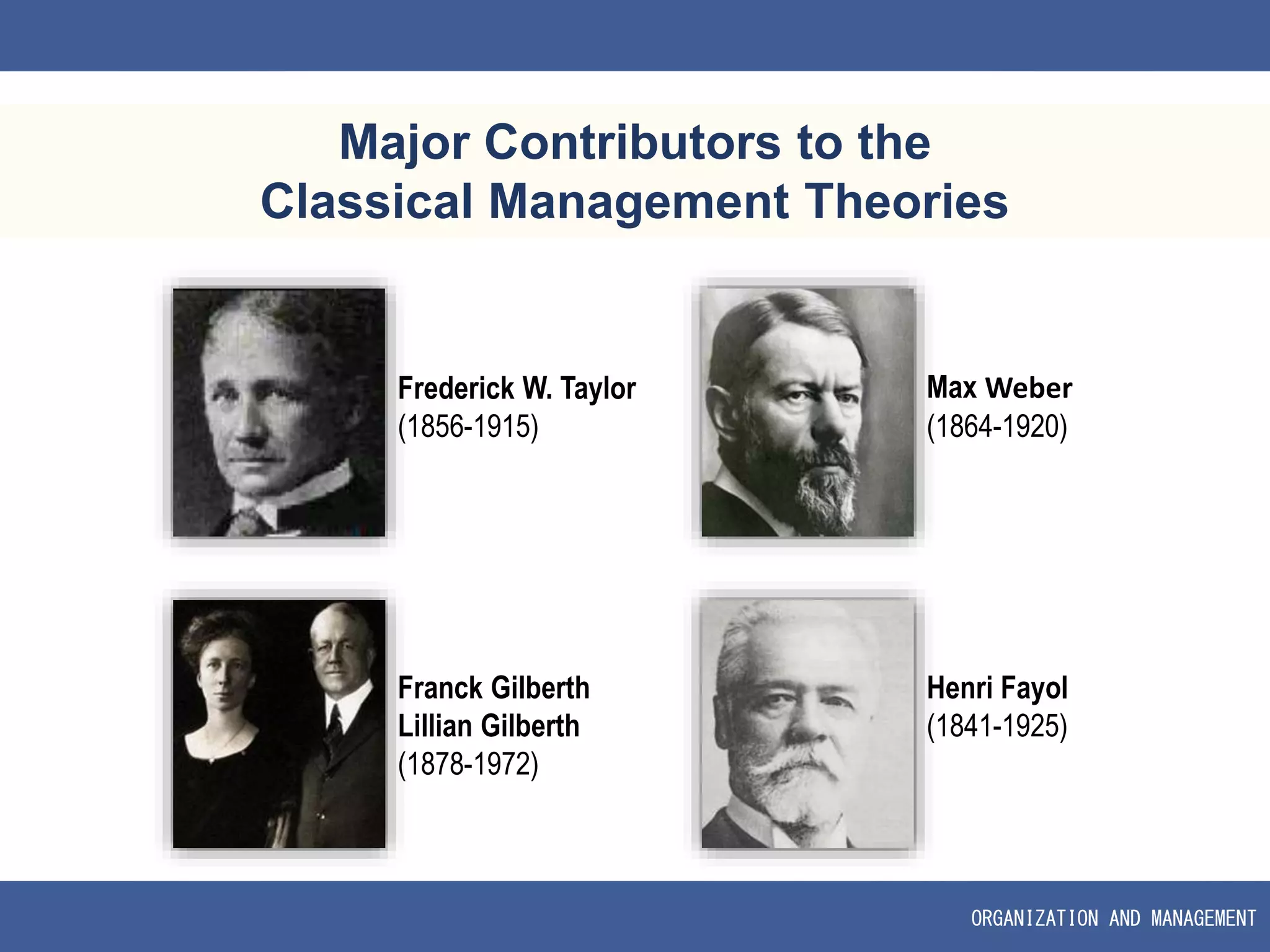


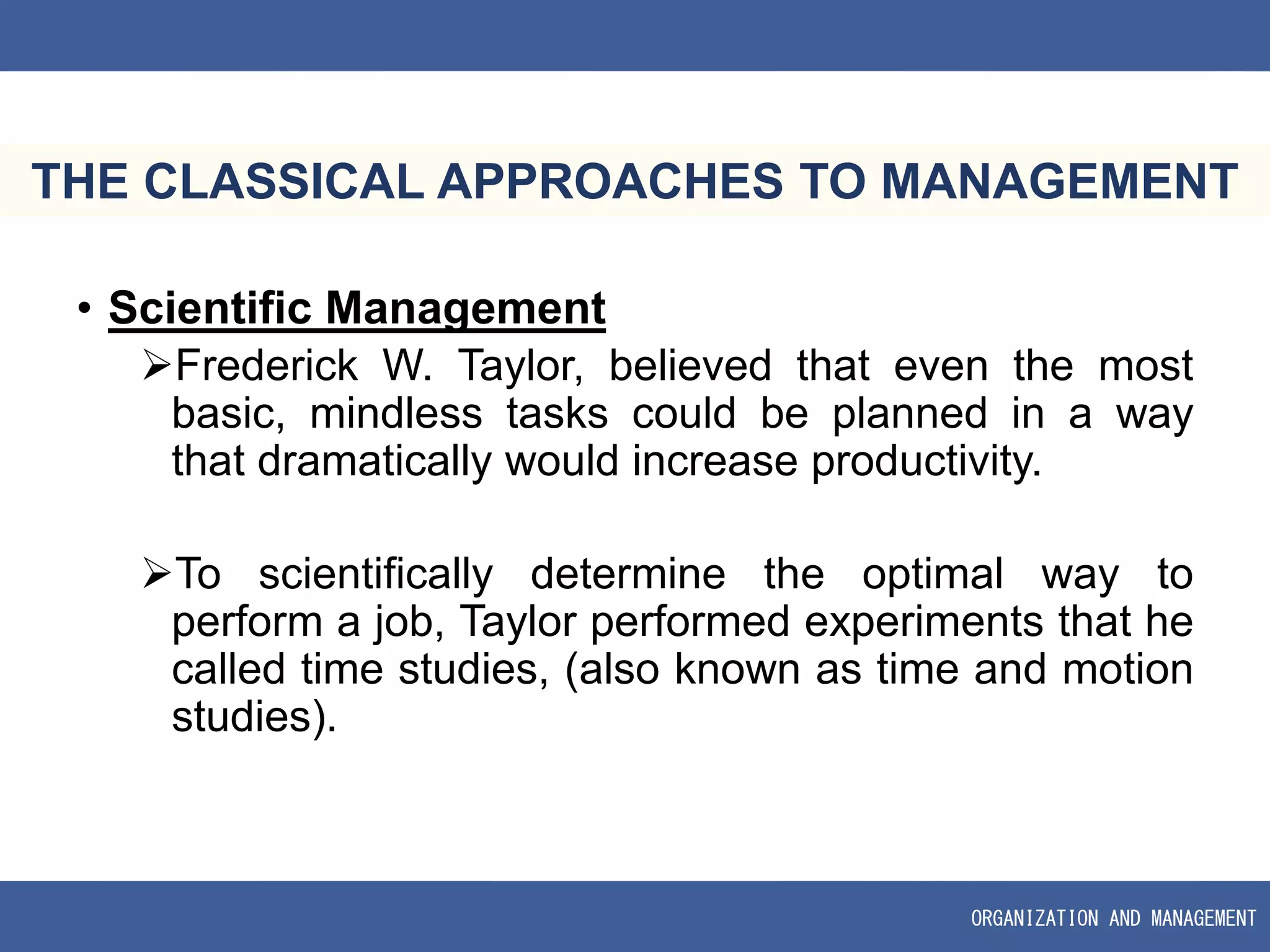
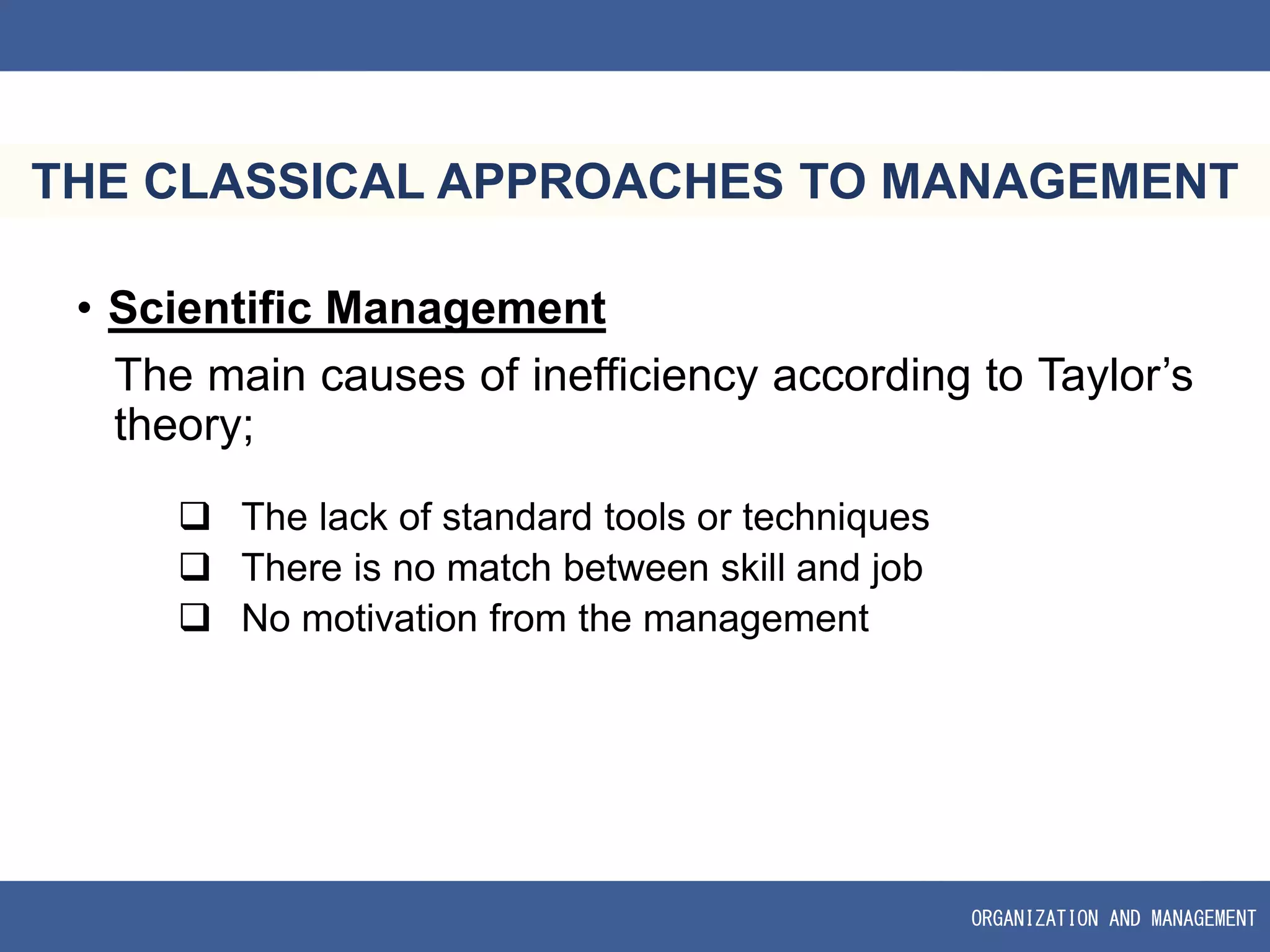

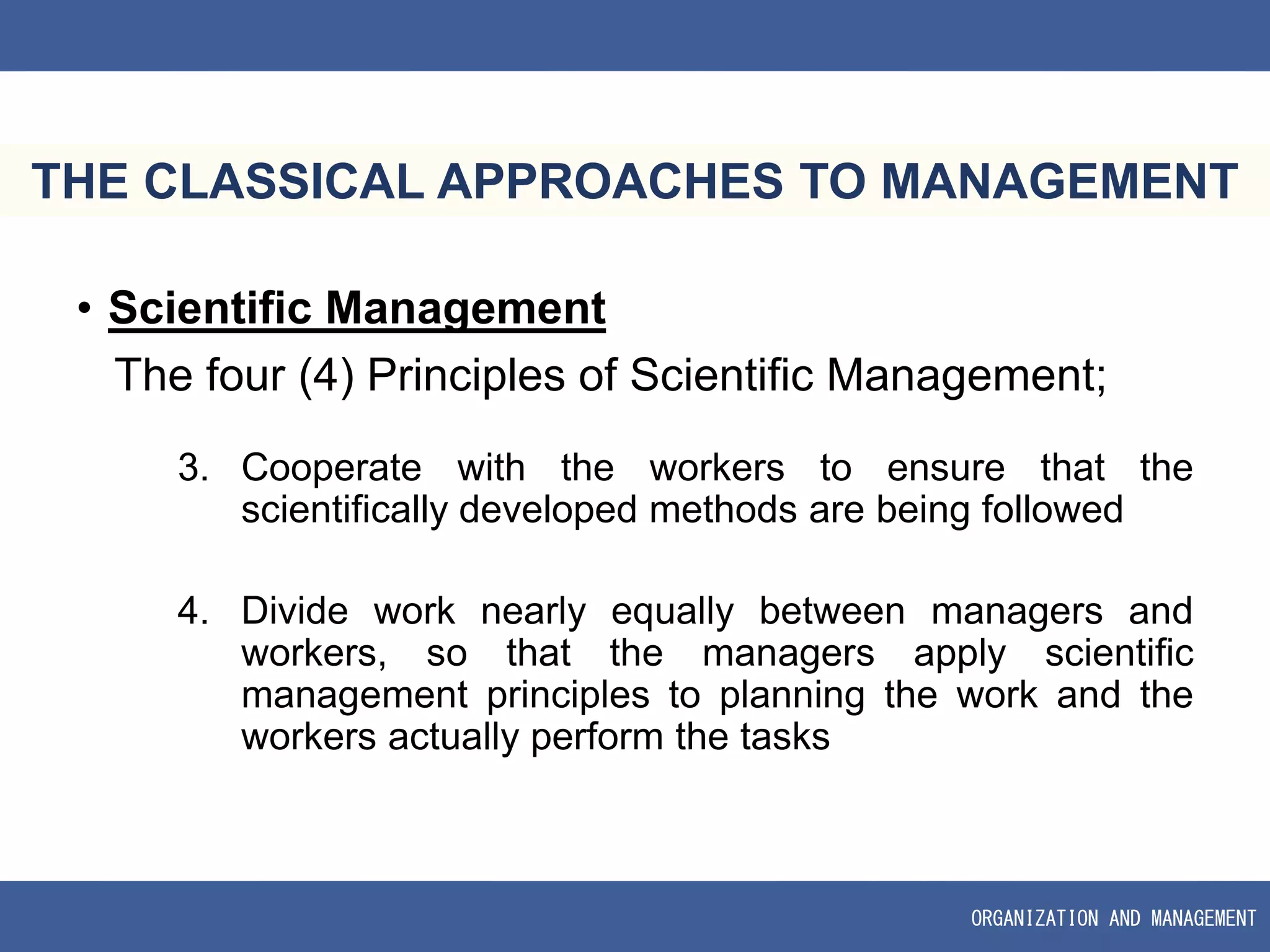

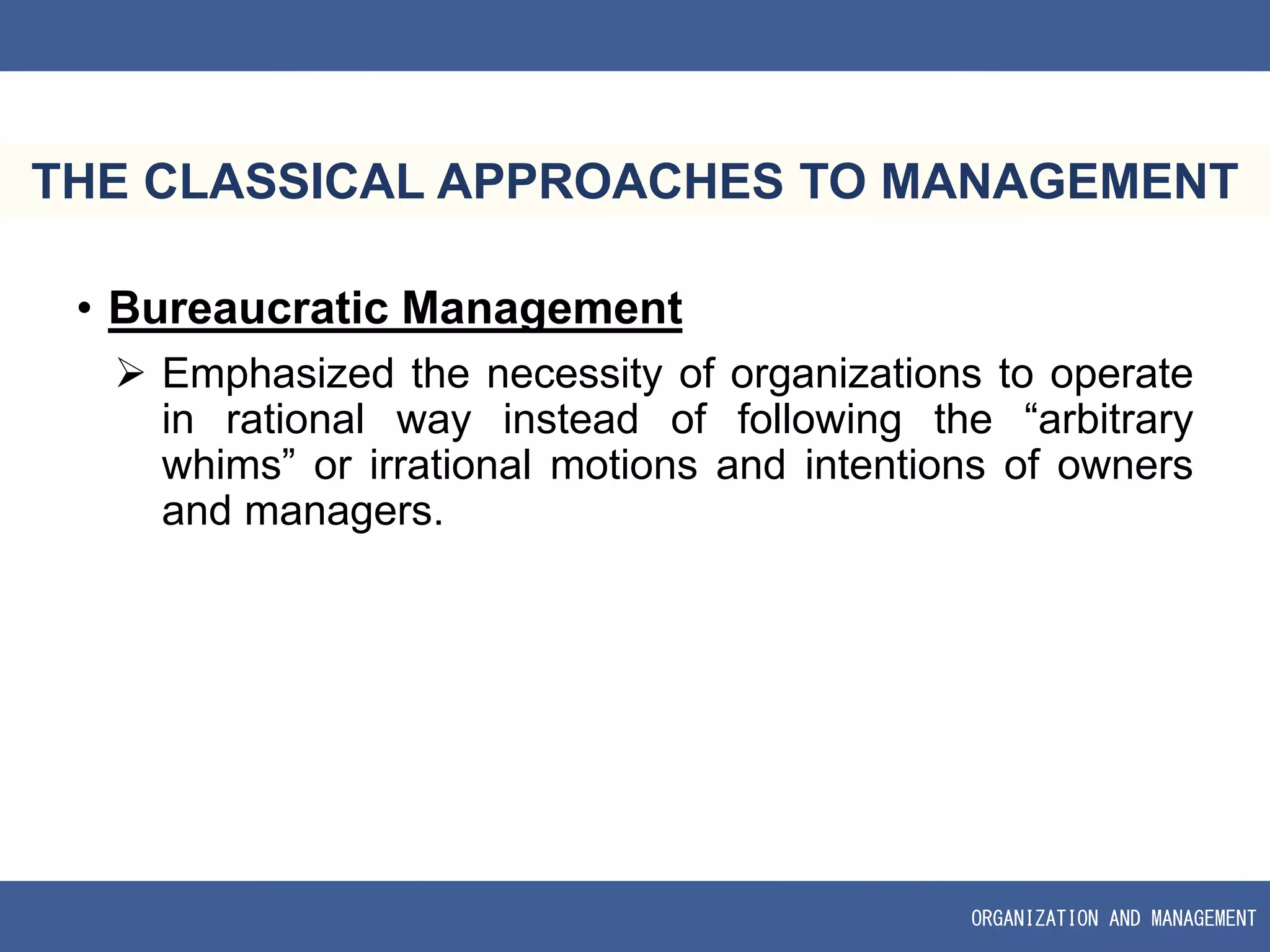

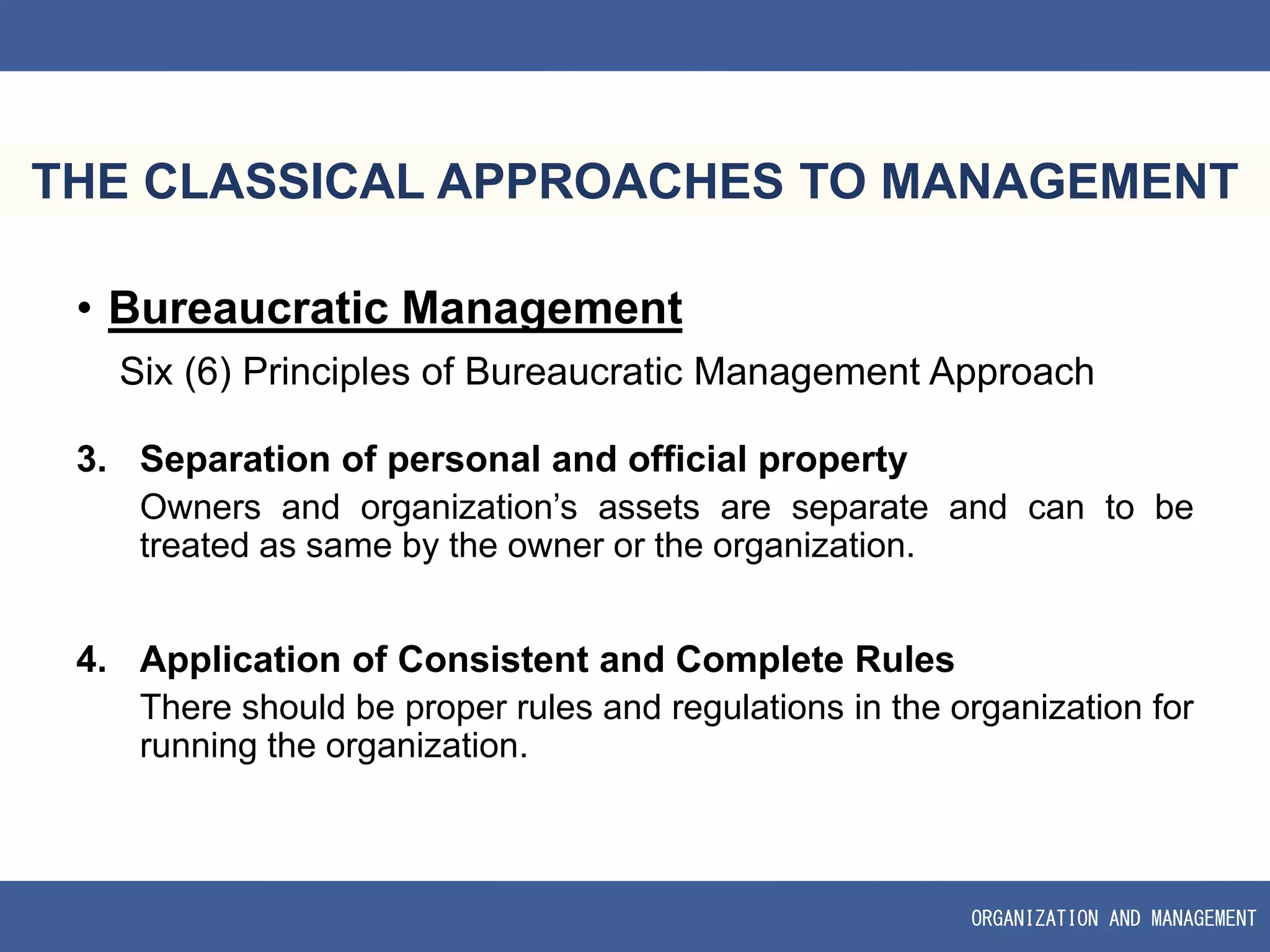



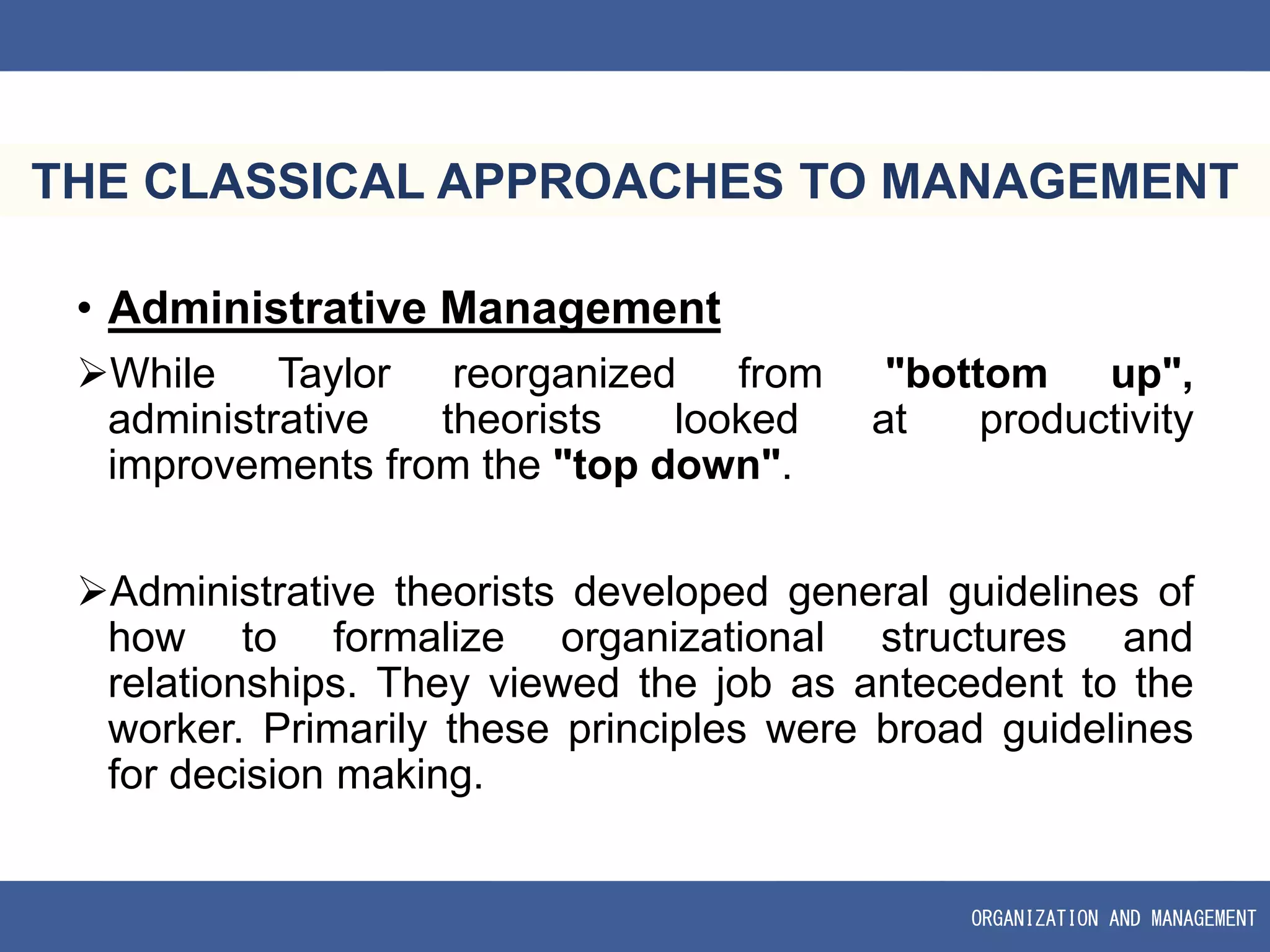

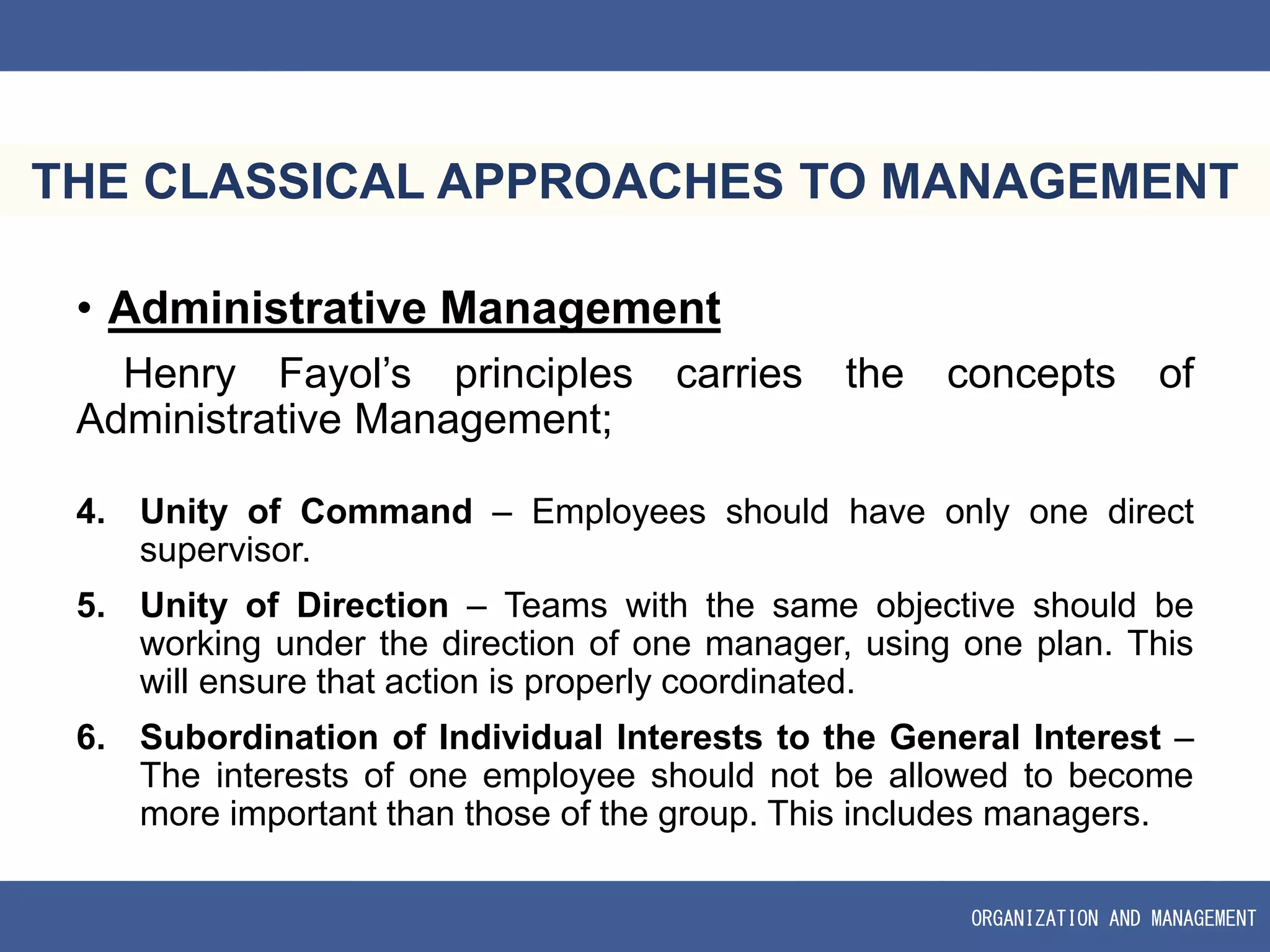
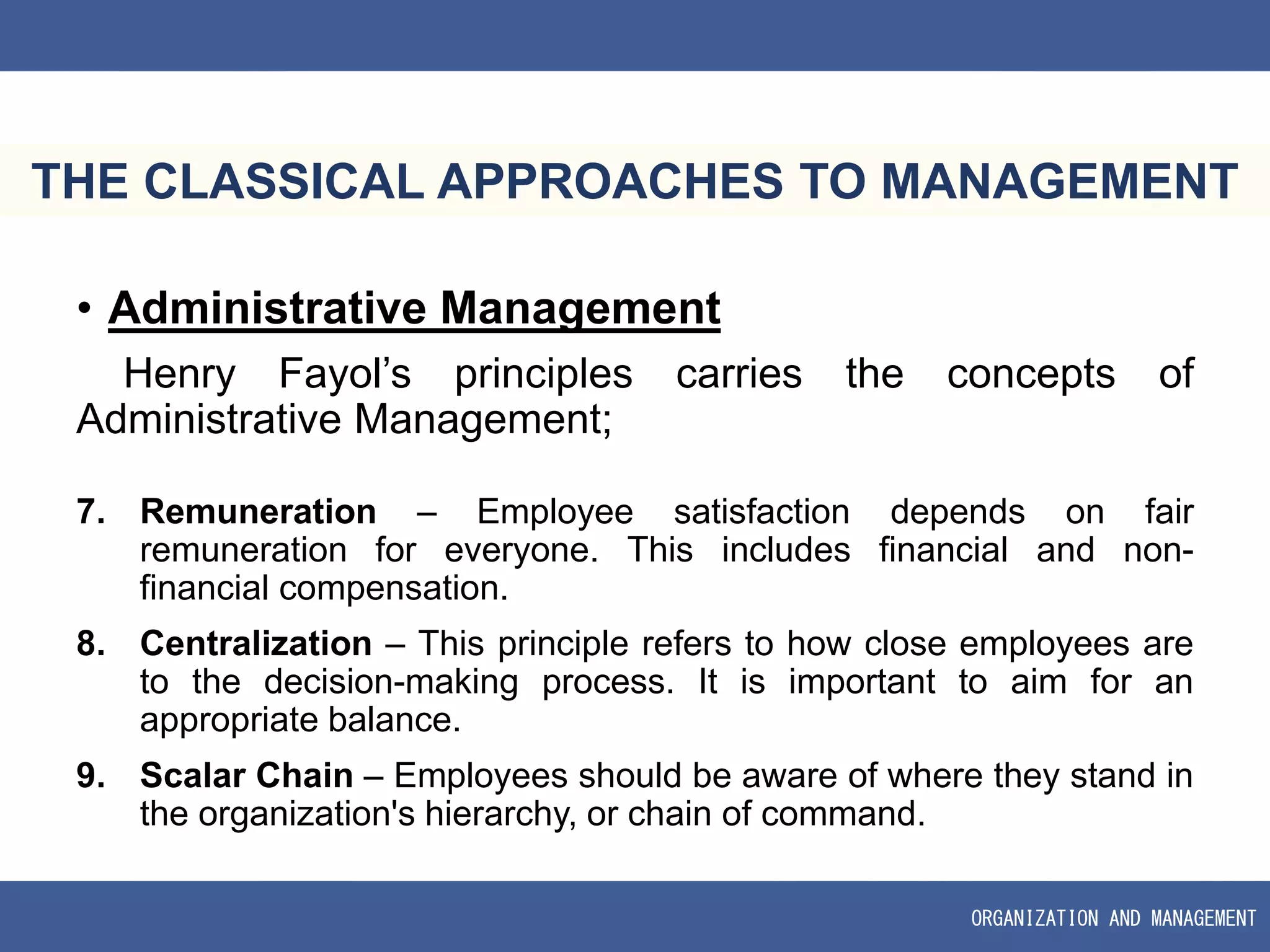
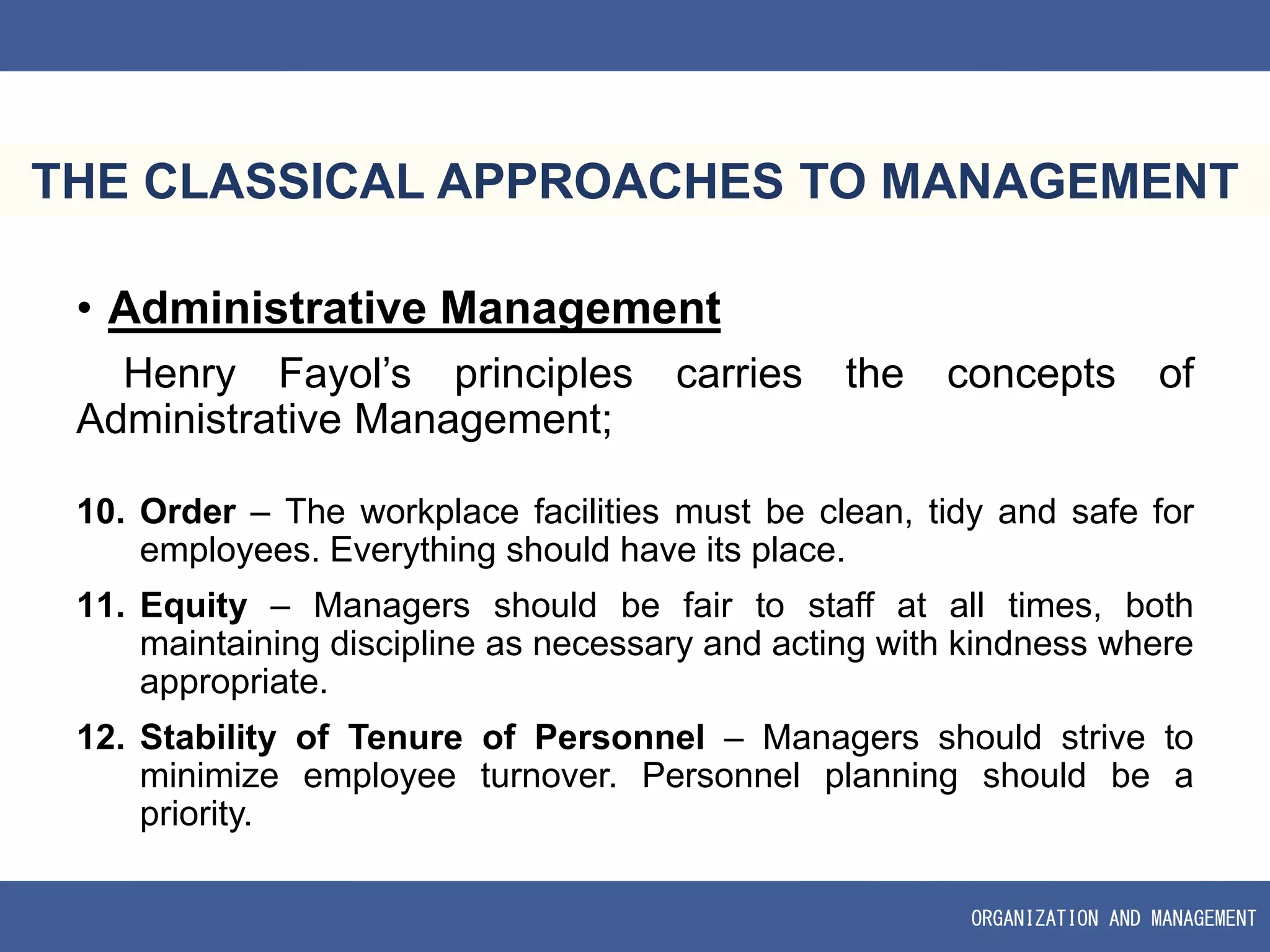


![ORGANIZATION AND MANAGEMENT
[ END OF LESSON ]](https://image.slidesharecdn.com/4classicalapproachestomanagement-170404024124/75/classical-approaches-to-management-32-2048.jpg)